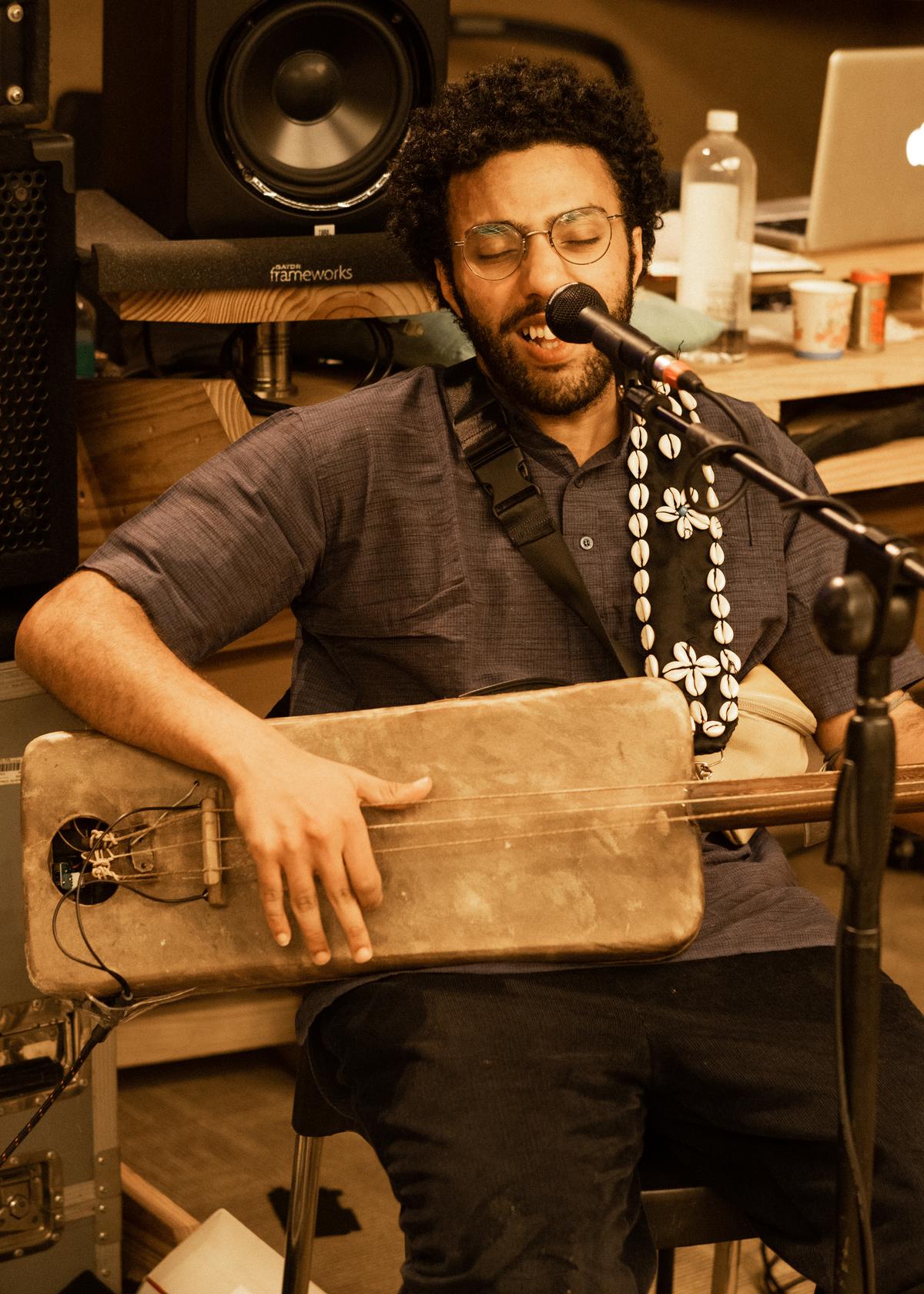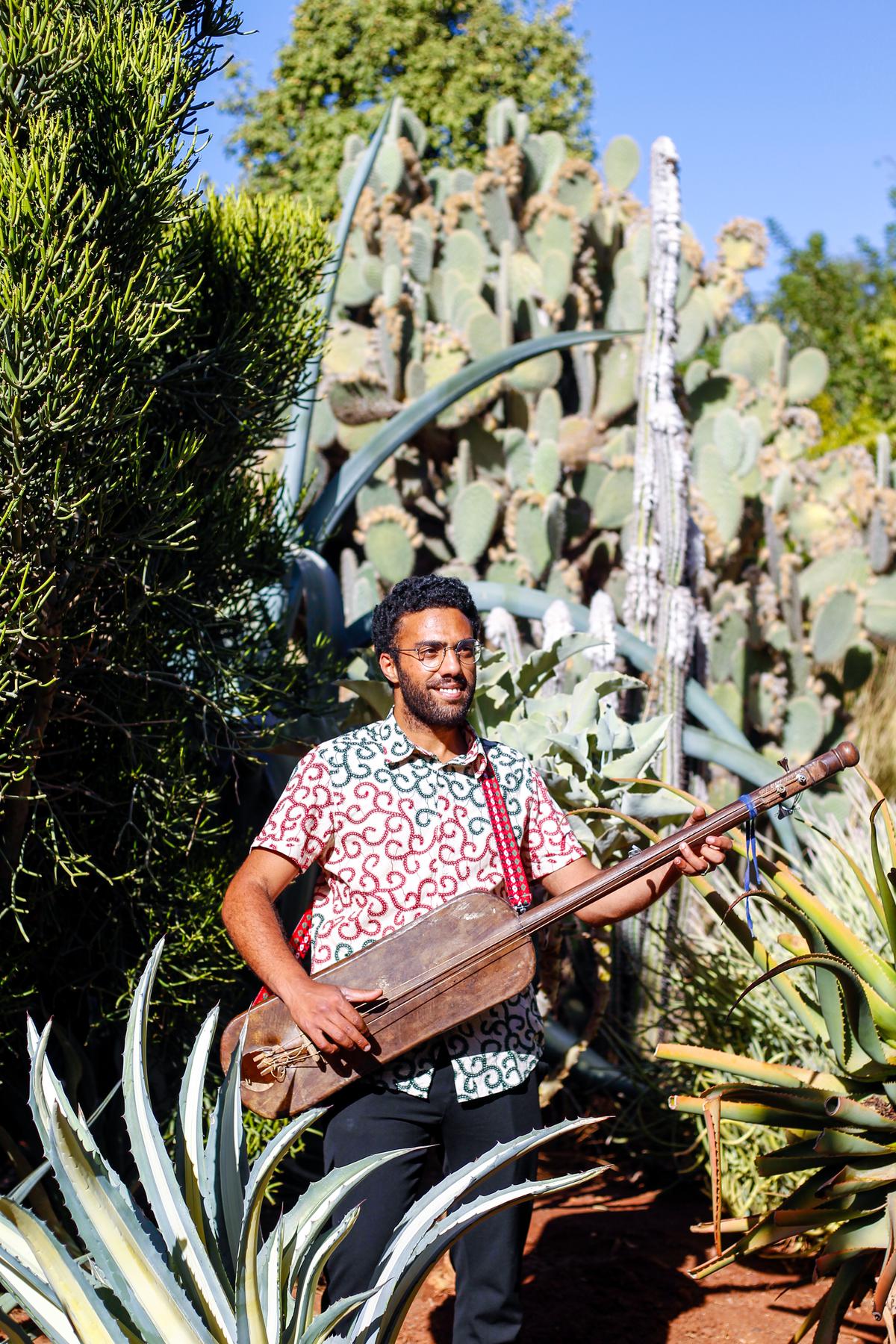[ad_1]
JISR, an amalgamation of Arabian, Afro, jazz, rock and classical genres, creates world music in every sense of the word
JISR, an amalgamation of Arabian, Afro, jazz, rock and classical genres, creates world music in every sense of the word
JISR means bridge in Arabic and that is exactly what the Munich-based music collective by the same name does. Recently in India for their multi-city South Asia tour, JISR led by singer, percussionist and gembri player Mohcine Ramdan, strove to break boundaries between different musical genres by playing a range of instruments, with local musicians at every stop they made.
“It was a dream of ours to come to India. It is a very interesting and beautiful place,” says Mohcine, adding, “We first played in Kolkata, followed by concerts in Delhi, Chennai and Bengaluru. After our performance at the Indian Music Experience (IME) in Bengaluru, we spent time working on studio recordings with Indian musicians such as Ramamani. These will be a part of our new album titled, ‘Karnataka Vibes,’ which will feature Hindustani, Carnatic and other styles of music.”
JISR with Indian artistes at their studio recording
| Photo Credit: Special Arrangement
Following their concert at IME, Mohcine says JISR were invited to play in Mysore for the Maharajah. “It was a happy coincidence that we were asked to play for the Prince and we performed with musicians in Mysore with a percussion orchestra.”
He adds, “It was a great experience and it lined up with our motto of building bridges between different cultures and peoples. We have been involving local musicians at concerts in Pakistan, Sri Lanka, Bangladesh and every country we’ve been to. It is very important after two years of this pandemic to reconnect with the world and reactivate cultural exchange.”
Mohcine plays the gembri, an African instrument with roots in Mali, Burkina Faso and Cameroon. The gembri is a three-stringed instrument carved from a log and covered on the playing side with camel skin.
Gembris are used in Gnawa music that was brought by slaves to Morocco. According to Mohcine, the music of the gembri is mystical and Gnawa music goes beyond leisure to combine religious songs, rhythms, traditional music and dancing; it is performed to heal the soul.
Gnawa music which includes African rituals and Sufi traditions was added to UNESCO’s list of Intangible Cultural Heritage of Humanity in 2019.

Mohcine Ramdan playing the gembri
| Photo Credit: Special Arrangement
Though he came from a musically-inclined family where his father played the flute and his uncle an Arabian Santoor, Mohcine’s father was not too pleased when he picked up Gnawa music from his friends. “My father felt the gembri was not a classical instrument, but I began to play it at the age of 14. I learnt it in my home town of Marrakesh where there is no structured method to learn this instrument. A small community of musicians play every day in an open courtyard or city square and that is how we learn,” he says.

Mohcine Ramdan with the gembri
| Photo Credit: Special Arrangement
Today, his band JISR transcends musical and geographical boundaries with their unique blend of Western classical, rock, jazz, Balkan music and Andalusian Flamenco. “I sing in English, Arabic, French and German; we try to build a small cosmos with our music,” he says.
[ad_2]
Source link


%20Ali%20Malak.jpg)